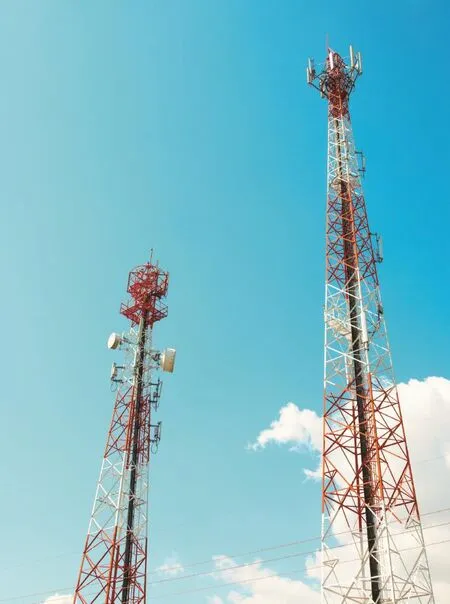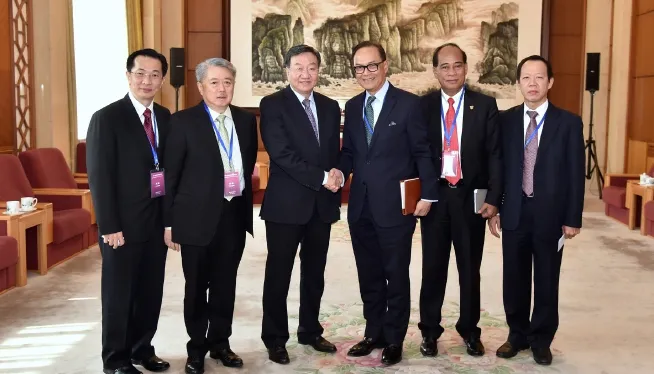“通而不畅”
——东盟互联互通的一大软肋
□ 文/克里斯·哈特利
“通而不畅”
——东盟互联互通的一大软肋
□ 文/克里斯·哈特利

信息通信技术的推广被认为具有聚合功能,可实现城市和工业区的跨国连通,对地缘政治局势也有一定的缓和作用。东盟的许多发展中国家已着手提高城镇化和全球化的发展速度,而信息通信技术则是下一个发展前沿。然而,东盟各国在宽带稳定性和宽带普及率两方面相差悬殊。因此,加强信息通信技术区域合作和宽带基础设施建设,有利于打造像刚成立不久的“东盟经济共同体”那样的阵营:既具有紧密的组织架构,又具有全球竞争力。
东盟各国信息化水平,参差不齐
东盟各国移动互联网的发展,势头迅猛;然而,互联网普及率却仍存在明显差距。柬埔寨、越南和泰国3个东盟国家的移动互联网覆盖率最高,另外,有8个东盟国家已超过世界平均水平。最近,联合国亚洲及太平洋地区经济与社会委员会公布的数据透露,东盟国家的宽带普及率仍落后于东亚和东北亚国家。从每千人口固定宽带接入率来看,新加坡在整个东盟地区排名第一,达到26.5%;泰国和马来西亚分别位列东盟第二(9.2%)和第三(9.0%),远不及新加坡;越南和文莱分别位列东盟第四(8.1%)和第五(8.0%)。相比之下,缅甸、老挝、柬埔寨、印度尼西亚和菲律宾5个东盟国家的固定宽带发展滞后,其每千人口固定宽带接入率依次为0.3%、0.5%、0.5%、1.1%和3.4%;以同种方式计算,这5个东盟国家在亚太地区排名垫底。
当然,东盟国家的固定宽带发展也呈现出了良好的发展迹象。2005~2015年,文莱、马来西亚和泰国的固定宽带普及率得到明显提高,而东盟其他国家固定宽带的发展前景则较为黯淡。2008~2014年,虽然菲律宾、泰国、越南和柬埔寨等东盟国家改善了电信基础设施,但政府在线服务的发展甚至呈现出倒退迹象。
而在新一代信息技术应用新突破方向——物联网的建设上,东盟则更为滞后。通常情况下,M2M终端规模是衡量物联网发展水平的重要指标。按这个标准来看,世界发达经济体在这方面做得最好。对东盟国家而言,只有加强固定宽带的互联互通,才能在物联网等全球尖端科技的竞争中占有一席之地。
齐心协力,同舟共济
由于各国坚持独立发展宽带业务,网络速度呈现出明显的地区差异化。对于工作中需要用到互联网的大多数人来说,工作效率受网络速度的影响明显。就网络速度而言,东盟和中国内地落后于世界排名前十的韩国、日本和中国香港。
如今,移动应用程序的应用范围越来越广,移动互联网的发展潜力和创业规模也日益凸显。对东盟国家而言,完善宽带互联互通所需的基础设施,让各国的网络速度达到平衡,是当务之急。把这一倡议纳入东盟现行的合作机制是可行之策,有利于缩小东盟国家与亚洲、欧洲以及北美等地区宽带互联互通程度高的国家之间的差距。
《东盟信息通信技术总体方案(2020)》提出三大倡议:完善信息及通信基础设施互联互通;控制灾难威胁;提升云计算能力。该方案旨在减少区域差异、加强协调与配合,但并未针对宽带连接速度、宽带普及率和宽带可靠性等方面的发展现状,制定明确的区域性标准和发展目标。不过,东盟各国决策者们对与信息通信技术相关的规则、管理、教育等要素予以关注,将助推基础设施建设成为转型的催化剂。东盟拥有很强的战略协调性、统一的行为规范以及适用于境内和跨境基础设施建设的融资机制,有望发展成为全球首个信息通信技术集群。
前进的道路上充满挑战。打造区域宽带基础设施平台,需要全面把握制约各大公共工程项目发展的突出瓶颈:既涉及融资机制和地理环境问题,又涉及地方和国家政治问题。另外,通过制定区域发展规划来加强基础设施建设,使制度建设和规范化管理变得更为复杂。例如,落实东南亚区域铁路走廊的倡议,需要所有沿线国家的共同参与——如果沿线发展水平较高的国家完成了其境内路段的建设,而其他沿线国家却陷入政治和管理困境,那么所有沿线国家将没有任何共同利益可言。信息通信技术的发展,亦是如此。
未来,新增的海底电缆系统具有投资吸引力,高效协作机制建设的紧迫性与日俱增。为了防止东盟各国宽带发展的差距进一步拉大,应着力加强宽带基础设施建设,并将其作为一种区域资源加以管理。东盟经济共同体刚成立不久,制度建设和基础设施建设关乎东盟的经济发展;为了弘扬集体主义精神,东盟各国人民应为此尽自己的一份力。如果与周边国家“通而不畅”,且没有实力相当的竞争对手,那么就算是东盟最发达的国家也难以实现更大的发展。
·许志亮 编译
·来源:美国《外交官》杂志
E arly last year, Poppy S. Winanti and I wrote about China’s increased investment in ASEAN, especially Indonesia, and whether China can behave responsibly. Since thenThe Jakarta Posthas published a number of expert opinions on Indonesia and China relations, from the fear of China’s rise as a regional hegemon to a balanced view on China, dispelling such a fear.
But less has been said about one question: why do Indonesia and ASEAN matter to China? What drives China to put billions of dollars in Indonesia following various multilateral and bilateral agreements at the ASEAN level and between Indonesia and China? In 2016, China became the third largest investor in Indonesia after Japan and Singapore.
After the signing of the Indonesia China strategic partnership in 2005 and the upgrade into a comprehensive strategic partnership in 2013, China is now Indonesia’s largest trading partner. What does it mean to be a strategic partner for China?
One should note that since the early 2000s, China has signed strategic partnership agreements with 47 countries and three international organizations in which ASEAN is one of them. Feng Zhongping and Huang Jing (2014) argue that the boom of China’s strategic partnerships is a result of China’s embrace of globalization and multi-dimensional diplomacy. It is a diplomatic instrument to secure China’s core interests and its peaceful rise as a global power.
A comprehensive strategic partnership, as articulated by the then Chinese premier Wen Jiabao in 2004, is an all-dimensional and multilayered, long-term and stable partnership that transcends differences in ideologies and social systems. It seeks to expand converging interests and seek common ground on the major issues while shelving differences on the minor ones. Along with Indonesia, other ASEAN members who have signed strategic partnerships with China are Vietnam, Cambodia, Laos, Myanmar, Thailand and Malaysia.
The strategic partnership is used by China as a diplomatic tool to protect its core interests, which include state sovereignty, national security, territorial integrity and national reunification. These core interests are reflected well in all documents of China’s strategic partnerships.
The question then is, why do Indonesia and ASEAN more broadly deserve a position as China’s strategic partner? I would strongly argue that it is to protect China’s core interest, its national security. In this case, it is to secure its energy supply. Energy security for China, as Downs wrote in 2006, means the acquisition of sufficient energy supplies to protect China’s core objectives.
In recent years China has emerged as a global player in the energy sector. This is a result of soaring economic growth, hovered between 9 and 10 percent per year for three decades since 1980. And since 2012 China still shows impressive growth at a rate of 7 to 8 percent. This is why China’s demand for energy is massive and propels the country to undertake energy acquisitions worldwide. Domestic energy in China is scarce except in coal, but with low quality.
China became a net oil importer in 1993, a net gas importer in 2007, a net coal importer in 2008 and the first global oil importer in 2014. It means that in 2014, China has become a consumer of 30 percent of global oil consumption and 45 percent of global coal consumption. Given this enormous energy demand, China has no other option but to go overseas to secure energy supply.
Why is ASEAN strategic for China? It is because about 60 percent of China’s oil import is transported through the Strait of Malacca. A strategic partnership with ASEAN will help mitigate the risks of disruptions in China’s energy transport from piracy, congested traffic, terrorist attacks and especially the naval forces of othermajor powers like the United States and Japan.
One way to mitigate the risk in the Strait of Malacca is the construction of the oil and gas pipeline from Maday Island in Myanmar to Yunan Province in China, which has been operational since 2015. It has cut by 30 percent the time needed to transport crude oil to China and reduced the risk of piracy and other risks. Also in November last year, China and Malaysia signed deals on defense.
The two parties also agreed to resolve the South China Sea case on a bilateral basis. This further secures China’s energy interest in the Strait of Malacca and South China Sea.
ASEAN countries encompass all of China’s energy shipping routes from the Middle East, Africa and Latin America. Therefore, it is in China’s core interest to maintain peace and stability in the region and seek closer economic cooperation with ASEAN member countries including Indonesia.
When he came to power in 2014, President Joko“Jokowi” Widodo projected Indonesia as a maritime power and this has become central in Indonesia-China relations since 2015. It sits well with China’s Maritime Silk Road ambition.
Indonesia’s diplomacy toward China can be further improved to mutually benefit the two parties when we understand why Indonesia and ASEAN matter to China.
Emanuel Bria
Asia Pacific senior officer and Indonesia Country manager at the Natural Resource Governance Institute
·Source:The Jakarta Post
Why Do Indonesia, ASEAN Matter to China?
By Emanuel Bria

On March 27, 2015, Mr. Jiang Zengwei (Left 3rd), Chairman of China Council for the Promotion of International Trade, met with Suryo Bambang Sulisto, Chairman of Indonesian Industry and Commerce Chamber (KADIN) (Right 3rd) and exchanged views on cooperation between both countries’companies.

